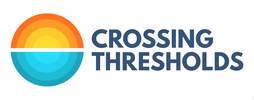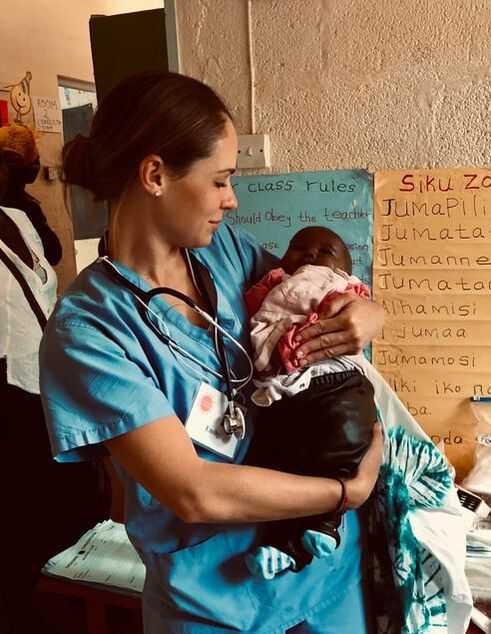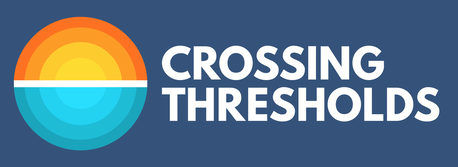|
“If you only carry one thing throughout your entire life, let it be hope. Let it be hope that better things are always ahead. Let it be hope that you can get through even the toughest of times…Because during these times, hope will be the very thing that carries you through.” -Nikki Banas
Hope. Every day I make a conscious decision to choose hope over despair. This past year has added a heaviness and difficulty to our already complex lives. The current state of the world makes it hard to choose optimism. Sometimes that task seems daunting. I know it often is for me. But hope is almost the only thing I have right now, the only thing I have to hold on to, especially being a COVID-19 nurse in New York City during a global pandemic. I think my trips with Crossing Thresholds and my time in Kenya has deepened my awareness and appreciation of hope. I will never forget my first drive into the Kibera Slum. I saw devastation, poverty, sickness, and struggle. I wondered ‘how people could live like this’. More importantly, I thought ‘how could we allow people to live like this’. But the more time I spent in Kibera, the more glimmers of hope I saw. It appeared at every turn. I saw it on the face of a parent who was relieved their child was able to attend school; I heard it in the laughs and giggles of children playing; I smelt it in the lunch being prepared at the schools (the only food many children can depend on!); I saw it in the child who wanted to be a doctor or teacher or engineer; I witnessed it with those who got dressed every day to go to work to try to better their families lives. Hope was everywhere. But hope is more than a thing to be witnessed. It is more than a disposition. It turns itself to action. So given my medical and nursing background, I began to dream of bringing more access to healthcare in Kibera. It took many years, lots of brainstorming and planning, and a lot of help and collaboration from others (not to mention blood, sweat, and tears). Then in the summer of 2018, Crossing Thresholds held its first community health clinic. My initial reaction to the clinic was not as positive as you may think. I had overwhelming feelings that what I was doing was not nearly enough. I could not stop thinking of the thousands of more patients who were desperate for care. I questioned if I was causing more harm than good. Were our efforts to make a difference really sustainable? What had I gotten myself into by running a medical clinic in the Kibera Slum? When I stepped back from it all, I reminded myself of WHY I believed so much in the idea of a medical clinic. Human beings have a right to healthcare. But on a more personal level, I carry so many stories of healing, stories I will never forget. It was seeing the mom hearing her baby’s heartbeat for the first time, it was the child who had a horrible ear infection that we were able to help, it was the older woman who brought in two young orphan toddlers to get seen by the doctor, it was the gentleman we educated on diabetes, it was the girl we were able to get to a dentist to remove a rotten tooth, it was the single dad who brought his whole family in to get HIV tested, to find out they were all negative. Hope and healing were everywhere in the medical clinic, and I got to see it. So, let’s be hopeful. Let’s choose hope. Let’s be hopeful that better days are ahead of us. Let’s be hopeful that we can make a difference in others’ lives every single day, near and far, big or small. Because even the darkest nights will end, and the sun will rise again. Emily Fawcett Registered Nurse Crossing Thresholds Board Member Community Clinic Coordinator **Please reach out to Emily at [email protected] if you are interested in joining a future medical mission trip**
1 Comment
|
Archives
May 2024
|


 RSS Feed
RSS Feed
